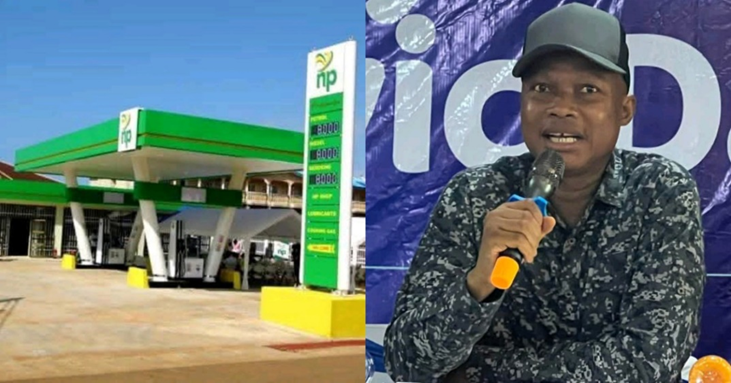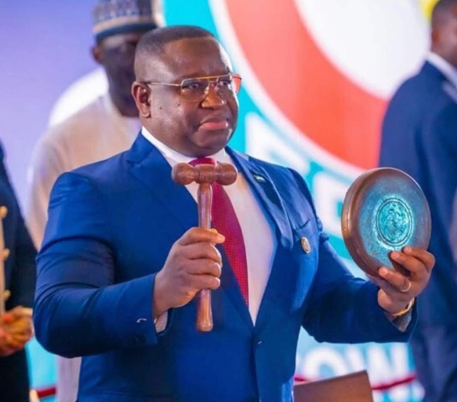By Mackie M. Jalloh
Sierra Leone’s fuel pricing policies have earned international recognition, as the country now ranks eighth in Africa for having one of the lowest petroleum product prices on the continent, according to a recent assessment by Business Insider Africa. The announcement was made by Brima Baluwa Koroma, Executive Director of the National Petroleum Regulatory Authority (NPRA), during a community town hall meeting held in Moyamba District.
In his address, Mr. Koroma explained that the improved ranking reflects deliberate government policies aimed at stabilizing fuel prices and shielding citizens from the harsh global fuel market shocks. He said the decision to reduce pump prices to NLe 27 per liter is not arbitrary but based on international pricing benchmarks, alongside national fiscal strategies.
“Unlike many countries grappling with soaring fuel prices, Sierra Leone has taken a calculated approach to reduce the burden on ordinary citizens,” he said. “This is not just about lowering costs—it’s about protecting livelihoods and preserving economic stability.”
According to Koroma, the NPRA’s efforts to maintain affordable fuel access come at a time when most African countries are experiencing upward trends in petroleum prices. He cited global statistics indicating that several nations on the continent are paying well above the global average of $1.17 per liter due to a mix of factors, including geopolitical tensions, weak refining capacity, currency depreciation, and a high dependency on imported fuel.
“Fuel prices affect everything—from how food gets to the market, to the cost of production in small factories, and the price of transport for students and workers,” Koroma stressed. “That’s why regulating petroleum prices goes beyond the pump—it impacts food security, education, and national inflation.”
Despite the positive ranking, Koroma noted some irregularities in the market. He revealed that several local fuel stations have reportedly started selling petroleum products below the government-mandated price, a move which may seem consumer-friendly but technically violates regulatory guidelines. “Ironically, even when retailers attempt to sell at lower prices, we are limited by the law from encouraging that practice,” he explained. “Government policy currently sets a minimum threshold, and pricing below that is not permissible under existing regulations.”
He attributed some of the competition in pricing to the growing number of private players entering the petroleum sector. This, he explained, has created a more competitive market environment, compelling existing operators to rethink their pricing strategies and operational efficiency. However, he also cautioned that without proper regulation, such competition could lead to quality control lapses and distortions in the national fuel supply chain.
Koroma went further to highlight the broader economic implications of petroleum pricing. He pointed out that fuel costs have a cascading effect on the transportation sector, agricultural productivity, and general production costs. “In a country where mechanized farming is on the rise, and diesel generators power a large number of off-grid areas, managing fuel affordability is directly tied to national development goals,” he said.
The NPRA boss also touched on the ongoing policy debate about whether Sierra Leone should transition to a more market-based pricing system—one that allows demand and supply forces to determine prices. While some stakeholders see this as a way to improve efficiency and investment, others worry it could expose the economy to global market volatility, leaving citizens vulnerable.
“There’s no one-size-fits-all solution,” Koroma admitted. “Our priority remains making sure fuel is affordable, accessible, and safely delivered, while ensuring the sector remains attractive for investors.”
The town hall meeting concluded with a Q&A session where residents raised concerns about fuel accessibility in rural communities, the need for quality assurance at the pump, and NPRA’s role in monitoring distribution chains. Mr. Koroma assured them of the Authority’s ongoing engagement with key stakeholders to create a transparent, efficient, and citizen-friendly petroleum market.
As Sierra Leone continues to make strides in energy regulation, the NPRA’s recognition signals both a policy win and a challenge to sustain gains while expanding access and efficiency.



